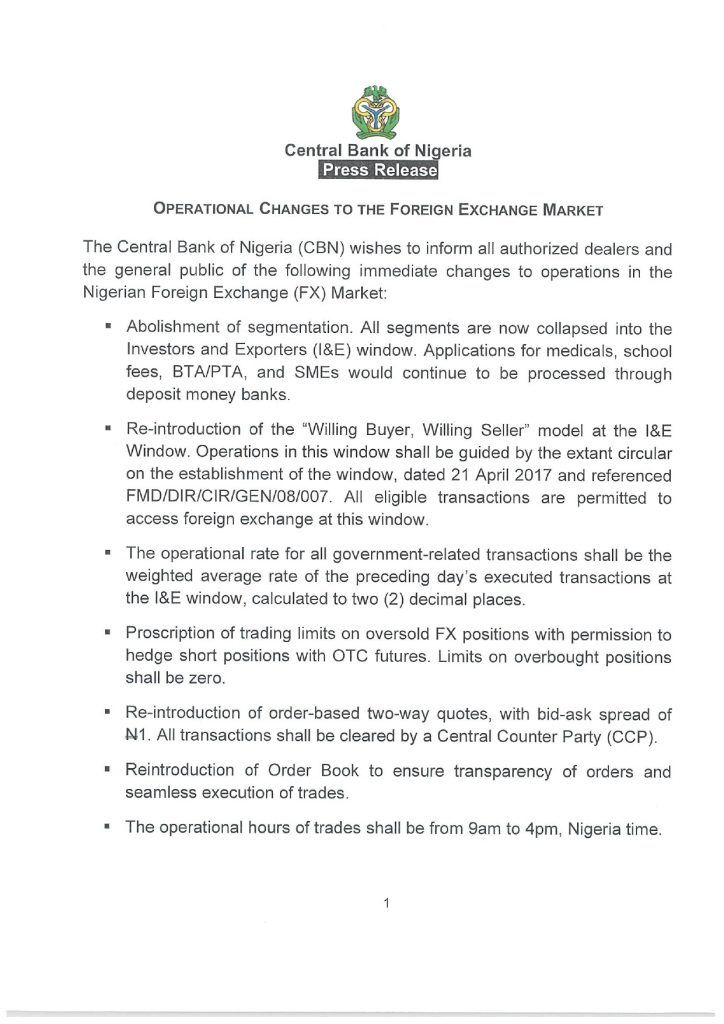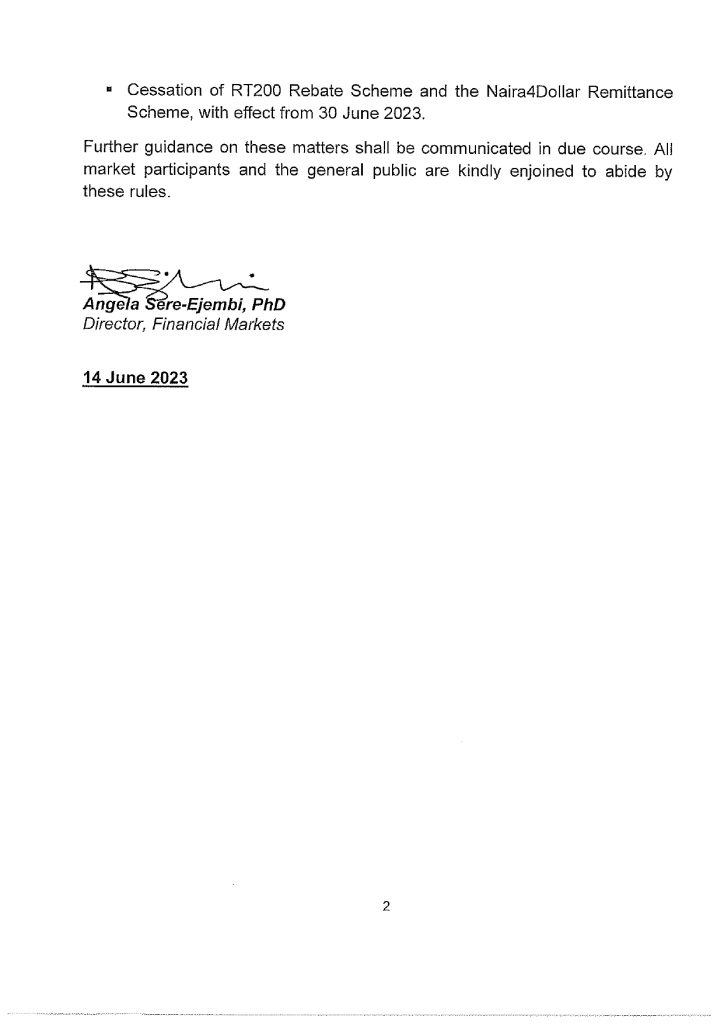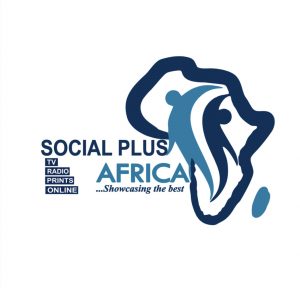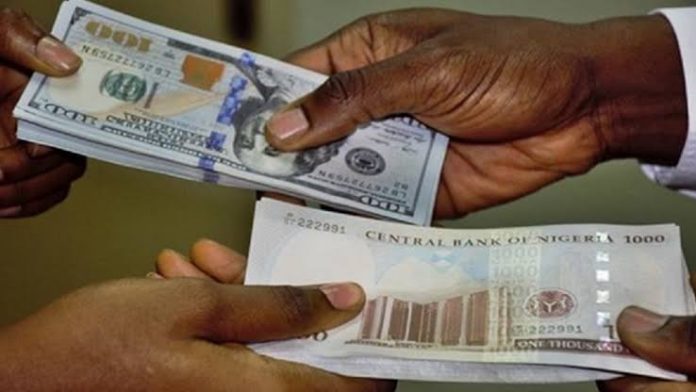The Central Bank of Nigeria (CBN) has announced immediate changes to operations in the Nigerian Foreign Exchange (FX) Market, as stated by Angela Sere-Ejembi, the Director of Financial Markets.
In a move towards unification, all segments of the forex market will be collapsed into one.
The key changes involve the abolition of the segmentation of the FX market into different windows. Going forward, all transactions will be conducted through the Investors and Exporters (I&E) window.
Applications for medical expenses, school fees, Business Travel Allowance (BTA)/Personal Travel Allowance (PTA), and Small and Medium Enterprises (SMEs) will continue to be processed through deposit money banks.
Under the new system, applications for Business Travel Allowance and Personal Travel Allowance will be executed at the official exchange rate determined by market forces at the I&E window.
The CBN plans to reintroduce the ‘Willing Buyer, Willing Seller’ model at the I&E window, allowing eligible transactions to access foreign exchange at their preferred rates.
For government-related transactions, the CBN will establish the operational rate, which will be the weighted average rate of the previous day’s executed transactions at the I&E window, rounded to two decimal places.
With market forces now serving as the primary determinants of exchange rates, the currency price will follow a floating exchange rate model. These changes aim to streamline and enhance the efficiency of the Nigerian Foreign Exchange Market.
Earlier on Wednesday, The Central Bank of Nigeria had authorised commercial banks to freely trade foreign exchange at any rate.
The authorisation means that banks now have the power to sell forex at a market-determined rate.
It was later gathered that some banks have pegged the USD to Naira rate at N700 to N755, suggesting that Nigeria is now operating a freely floating exchange rate in line with President Bola Ahmed Tinubu’s pledge to unify the rate.
Read full press statement below:








